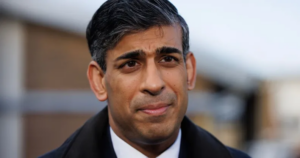
Louisiana Republican representative Mike Johnson, known for his history of advocating against LGBTQ+ rights, has assumed the position of Speaker of the House of Representatives, becoming the 56th individual to hold this role. This appointment has triggered strong reactions from LGBTQ+ advocacy groups and Democrats, who view it as a concerning development for the American people.
Johnson takes over from the ousted speaker Kevin McCarthy, who made history as the first House Speaker to be removed from office in U.S. history.
Johnson’s promotion has drawn attention to his past comments and political positions, particularly those from the early 2000s. He had previously referred to homosexuality as “inherently unnatural,” predicted that same-sex marriage would have detrimental effects on America, and argued that legalizing it could allow pedophiles to claim “equal protection.” In a 2003 column, he asserted that there is no constitutional “right to sodomy” and that the right to privacy in one’s home does not exempt all activities from criminal law.
I am honored to have been elected the 56th Speaker of the House. It is time to come together to deliver for the American people! pic.twitter.com/gQSSIfXgeR
— Rep. Mike Johnson (@RepMikeJohnson) October 25, 2023
In addition to his anti-LGBTQ+ stance, Johnson is a vocal opponent of Roe v. Wade and supports a national abortion ban. He promotes covenant marriages, which make divorce more challenging to obtain, and backed Donald Trump’s 2017 executive order to restrict immigration from several predominantly Muslim countries. Johnson is also allied with Trump and has been described as an architect of the effort to overturn the 2020 election.
The elevation of Mike Johnson to Speaker of the House has sparked criticism from various quarters. LGBTQ+ organizations, such as the National LGBTQ Task Force and the National Black Justice Coalition, strongly condemned his election, citing his record on civil rights and LGBTQ+ protections.
Democrat Mark Pocan, Chair of the Congressional Equality Caucus, expressed disappointment that the House had the opportunity to select a leader who could work in a bipartisan manner but instead chose someone with a history of opposing LGBTQI+ equality. Pocan emphasized that this decision could lead to continued attacks on the LGBTQ+ community in Congress, as more than ten anti-equality votes had already taken place during the current Congress.
Author























